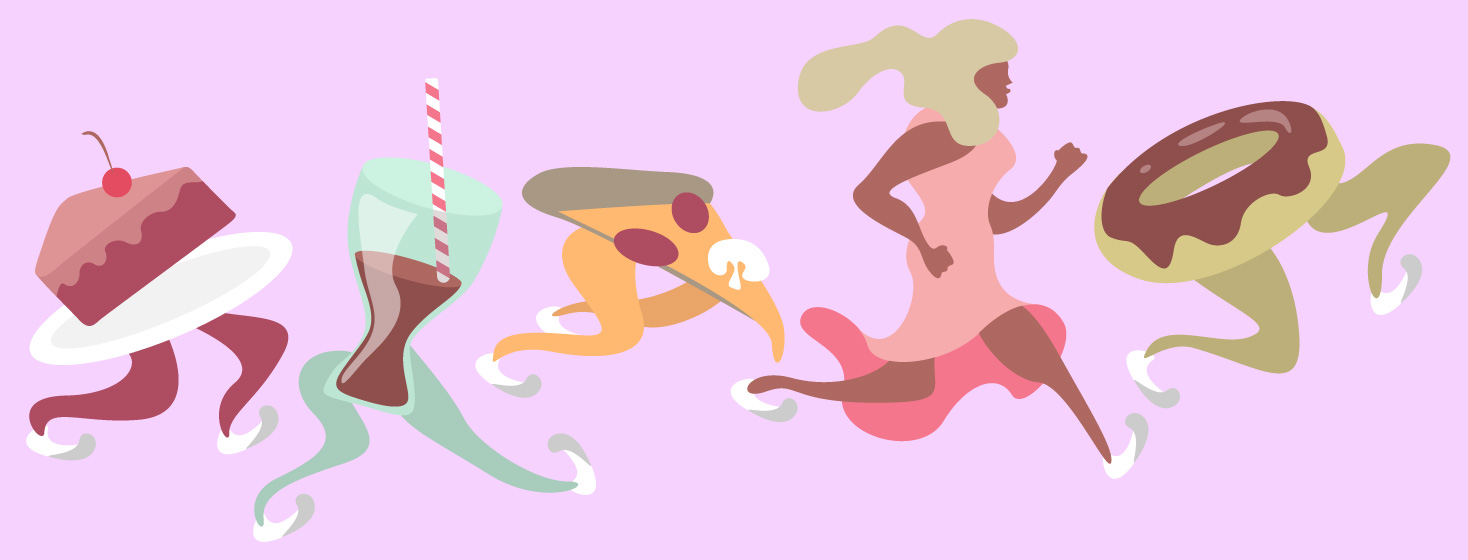How to Beat the Cravings
Cravings are often the hardest part of sticking to any new diet. They catch us when we are not only stressed but when we relax as well. They can feel emotional, like a treat, like rebellion. There are so many factors that go into a craving it can be overwhelming. And unfortunately, with IBS we often crave our trigger foods.
The first step is to work out why you are craving the food. These are the most common that I experience and have heard from my clients:
1. Needing energy
You feel very tired so you want a quick snack to help you get through. Especially carbs will feel like a quick energy boost.
2. You need comfort
Comfort foods are a big part of cravings. What we are normally actually craving is connection. So get on the phone or have a conversation with another person that you love. Be that your mum, your best friend, a trusted coworker. Often we try to numb this feeling with food, when a 10 minute conversation with another person will do the trick.
3. Your physical body asking for it
The craving can sometimes be your body’s cry for help. Chocolate cravings are often a need for magnesium. Salty cravings can be your adrenals asking for sodium. Your body will send signals for processed foods as it knows it is a quick and easy way of getting that nutrient. However, that can come at a cost of the side effects like inflammation, brain fog, low energy etc. Try to use the snack options like the Chocolate Seedy Balls that I gave you as they are magnesium rich and are nourishing for the adrenals. Over time you can train your body to crave healthy foods for these nutrients.
4. You’ve earned a treat or reward
We often use food as a reward for a job well done. You might have had a big day at work and you feel like you deserve that piece of chocolate. Or you have eaten well all day, so why not reward yourself with some ice cream. Working out other ways to reward yourself will be important if this is something that happens a lot for you. Changing chocolate for a hot bath, a walk in the park, your favorite TV show, will train your brain that it doesn’t need food as a reward.
5. Rebellion
Sometimes it is all just too hard. You want to rebel against the diet that the dietitian gave you. You still don’t feel great so why not just eat the chocolate so at least you have had something that tastes good and that you like. Sometimes we just want to give up when it all gets too much.
6. Dehydration
Often when we feel hungry or have cravings we are actually dehydrated, so having a drink of water can curb the craving and make you feel better and more energized.
What can I do in the moment?
Keeping the cravings at bay is not an easy task, but following these steps can help:
- Stop and take a breath. Recognize that you have a craving
- Ask yourself why you have the craving. Is it one of the above or is it something else?
- Ask yourself if there is something else that you can substitute for that unhealthy food. Is it a healthier food, or is it a different activity that will fulfill the same emotional hole?
- Wait 7 minutes. Tell yourself that if you still want it in 7 minutes and you have done the previous steps then you can have it. Often what happens is that in 7 minutes we get distracted with other things and completely forget about the craving.
What if you give in?
Sometimes we do have to give in to the craving, especially if we are going through a hard time. The worst thing that you can do if you have given in, is to feel guilty about it. This just exacerbates everything and will leave you feeling more stressed and depleted. So if you are going to eat the chocolate, enjoy it and recognize why you have done it, but don’t beat yourself up over it.
Good luck!

Join the conversation